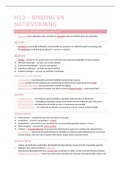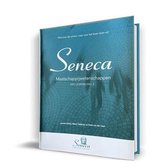Summary
Samenvatting H13 Seneca deel 3 Maatschappijwetenschappen vwo 6
- Course
- Level
- Book
Omdat ik heel goed begrijp dat je geen zin hebt om 5 bladzijdes per paragraaf te lezen heb ik een samenvatting van h13 uit het maatschappijwetenschappen boek Seneca deel 3 voor Vwo 6 voor je gemaakt. Een compacte samenvatting van die hele hoop stof. Bevat wél alle stof uit deze hoofdstukken die je...
[Show more]




